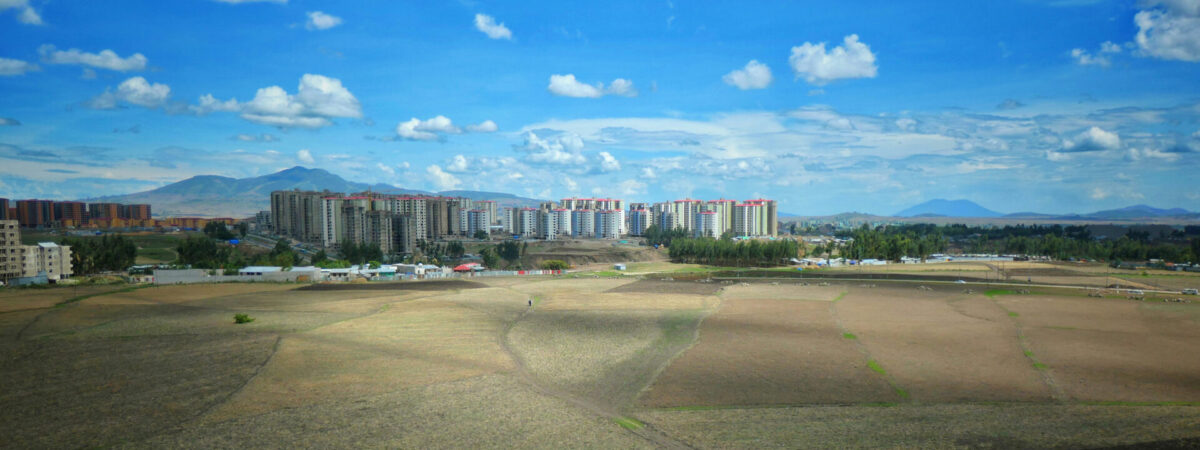In the birthplace of humanity, unearth the multicultural mix and intriguing history that swirl across the canvas of Addis Ababa. Characterised by thriving business and industry and buzzing with life, the capital of Ethiopia is home to nearly 3.5 million people and also where you’ll encounter the most UNESCO World Heritage Sites in Africa. This is a city that honours the ghosts of its past and examples of Aksumite structures, and is a hotspot for religious architecture.
~ This guide is a collaboration between writer Joyce Wachau Chege and Abdisa Dawit Shifera, local expert ~
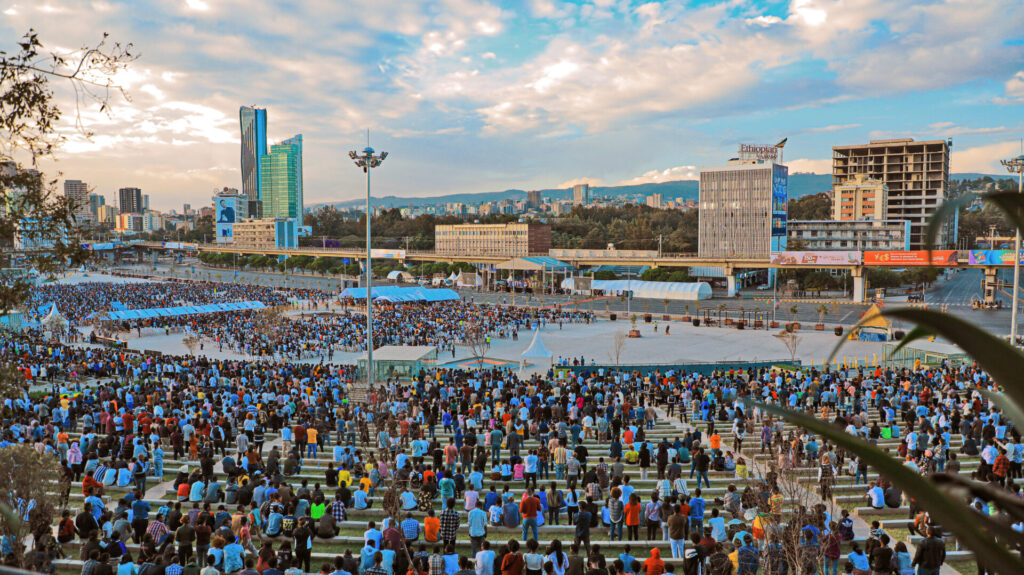
Upon Arrival
After a visitor arrives in my city, I always recommend going straight to Meskel Square, the heart and nucleus of Addis Ababa. If the timing of your trip should enable you to see a celebration here, it’s a huge tick off the bucket list of local experiences. During the Meskel Feast — taking place in September, two weeks after the Ethiopian New Year — the square is full of life and people from all over marking the finding of the True Cross.
The best time to be here is during peak travel season from March to October, when hiking in the highlands is at its easiest, with blue skies and sunny days. Though your choice of pursuits will be dependent on the kind of activities you’re interested in, whatever you enjoy doing — if it’s outdoors, it’s worth noting that there’s warm weather year-round.
I tell first-time travellers to be aware that Ethiopia is a place where there are many different cultures, so they should be courteous and respectful with any approach. Learning a few Amharic words is encouraged to ease communication with the locals. I also tell them to avoid taking photos without permission, because there is a melange of different ethnicities who might not appreciate it. In some cases, you might be asked to pay for taking photos of/with people.
People from here know better than to walk around aimlessly at night in the streets. Instead, they would rather be in the comfort of their booked restaurants, or in their homes having a good time with friends and family.
The best museum to start your journey and get a good sense of the city is the National Museum of Ethiopia, home to Lucy, the world-famous skeleton known scientifically as Australopithecus afarensis; a landmark in the history of human origins. In Amharic, she is called “Dinkenesh”, which means “you are marvellous”. The museum gives you a chance to gain a full appreciation of the local culture while at the same time delving into the history of earliest mankind.
Parents should take their kids to Unity Park because this a good place to learn about nature and history, culture and historical buildings. You can escape to a paradise of indigenous plants in the peaceful Traditional Garden, and it’s good for photography too.
Food from the Heart
Among the foods my city is most proud of, injera — a flat spongelike bread that looks like a pancake, piled with meat, vegetables and hot sauces — is a native delicacy. Don’t miss the chance to try doro wat too, a very commonly found dish of chicken thigh stew, cooked in a spicy mixture of garlic, onions and butter; some hard-boiled eggs are also added. I like to go to Yod Abyssinia Traditional Restaurant to really enjoy these dishes.
When we get together to celebrate the many cultural festivals spread across the calendar, tej (Ethiopian honey wine or mead) is the oldest and most famous alcoholic beverage, flavoured with indigenous herbs. It is more often than not mistaken for orange juice, so be careful about how much or how quickly you drink! Regardless of strength, it is a good complement to the Ethiopian cuisine. I like to gather my friends and go to Tikus Shiro for a round of their homemade tej.
When we eat completely local, I will go to 2000 Habesha Cultural Restaurant. I know the food here is served in generous portions, the Ethiopian decor is a sight to behold, and live performances add to a delightful experience.
Another two classic iconic restaurants include La Mandoline French Restaurant, with a great ambience, garden dining experiences and top-notch service; and Dashen Traditional Restaurant, with its huge portions of a variety of different cuisines, outdoor spaces giving guests room to relax and soulful performances making it a big draw for first-time visitors.
The part of town where locals come for traditional food is Lucy Lounge & Restaurant. Located at the Ethiopian National Museum, the restaurant is a popular spot with a replica of Lucy at the entrance. They have beautiful gardens, soothing background music, and the culinary experience is exquisite.
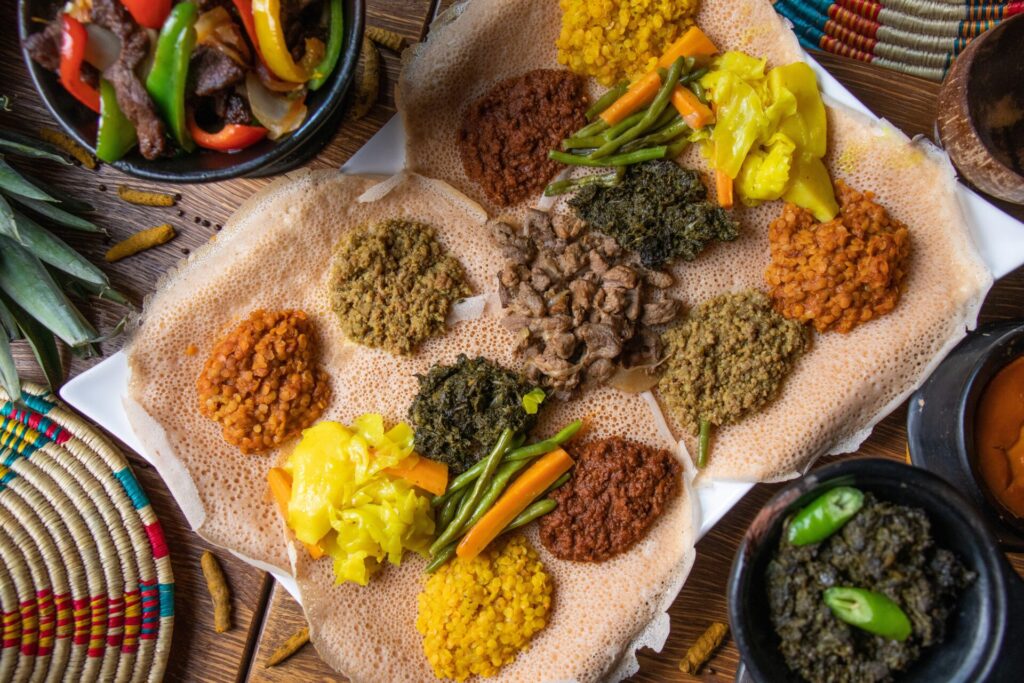
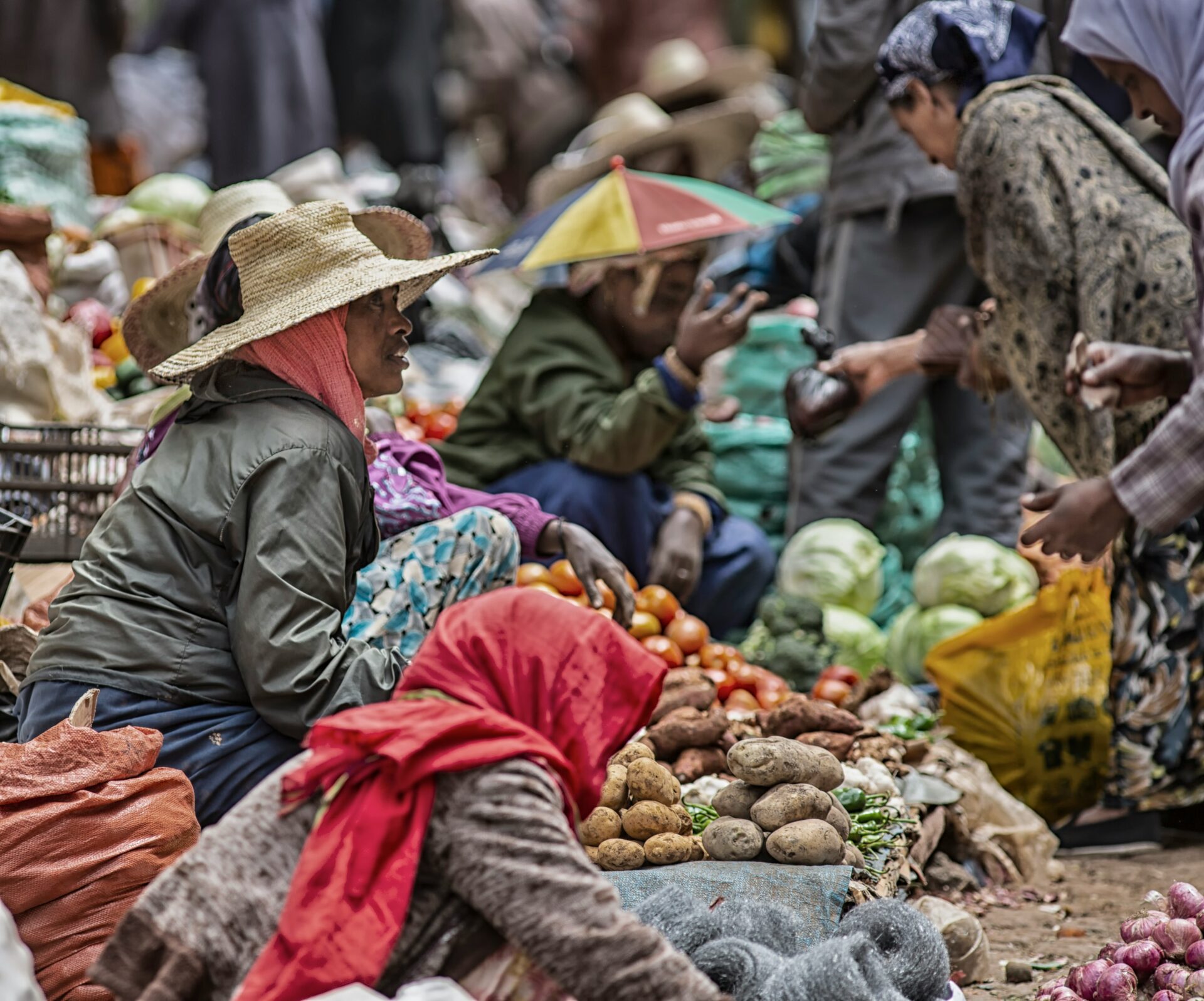
Shopping Locally
My city is known for making potent high-quality Arabica coffee.
The best food market in Addis Ababa is Fresh Corner, where shoppers can get fruit and vegetables, dairy products and organic foods and there are many locations to choose from around the city. The best market to buy everyday items like spices, whole foods, and textiles is Lalibela Saturday Market.
To buy local souvenirs, I always take visitors to Shiro Meda Market. The products are locally made and the vibe is busy because the place is always full of people looking to buy locally crafted clothing and keepsakes.
And we know to avoid items of inauthentic craftmanship. It is wise to have a guide help you compare different prices, to avoid returning home with items that will cost you a fortune but will not last very long.
Getting Deeper Into Addis Ababa
A great book to learn more about my city is Addis Ababa, The New Flower of Africa by Esubalew Meaza. It’s an insightful representation of the city, showcasing its culture, history, landscape and people.
Most people know about Meskel Square, the important landmark at the centre of Addis Ababa where celebrations and sports are held but Lalibela should also be visited because this is the “New Jerusalem” of Ethiopia. Here rock-hewn churches are built underground at a network of UNESCO sites. With Ethiopia being a Christian nation, you will come across pilgrims dressed in white robes in the area. You will also find hiking routes leading to the escarpments and awesome eco-lodges for guests built along the way.
My city is a place people are attracted to because of the monolithic churches, cultural traditions and tribal diversity.
To celebrate my city at its best, come during the months of festivities. For a case in point, January, when both the Ethiopian Christmas (also known as Leddet/Genna) and the Epiphany (known as Timket) are celebrated; because at such times, with the coming together of people from all over, you can soak up the festive atmosphere and truly appreciate the culture.
Most people think of my city as a place which shelters the African Union and also one of the two African countries that were never colonised, and to others, it’s a place of origin for the first humans — but really this is a destination to revel in the authenticity of the cultures that reside here.
This is one of the best places in the world to experience a belief system and way of life that challenges what you think you know; locals are proud of that because our economy is boosted by the tourists that flood in.
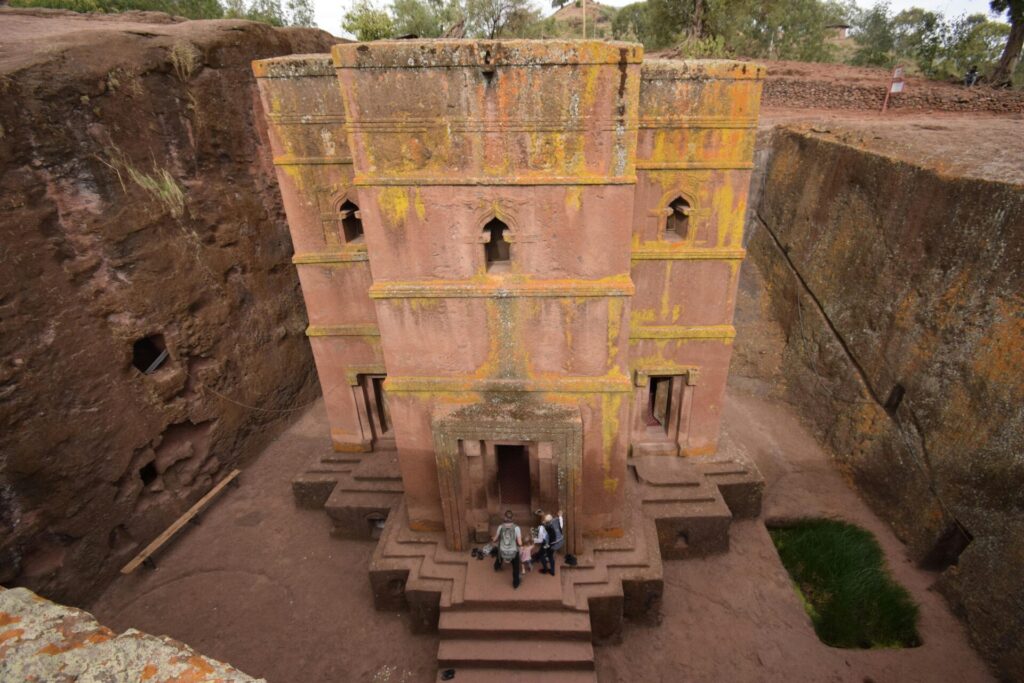
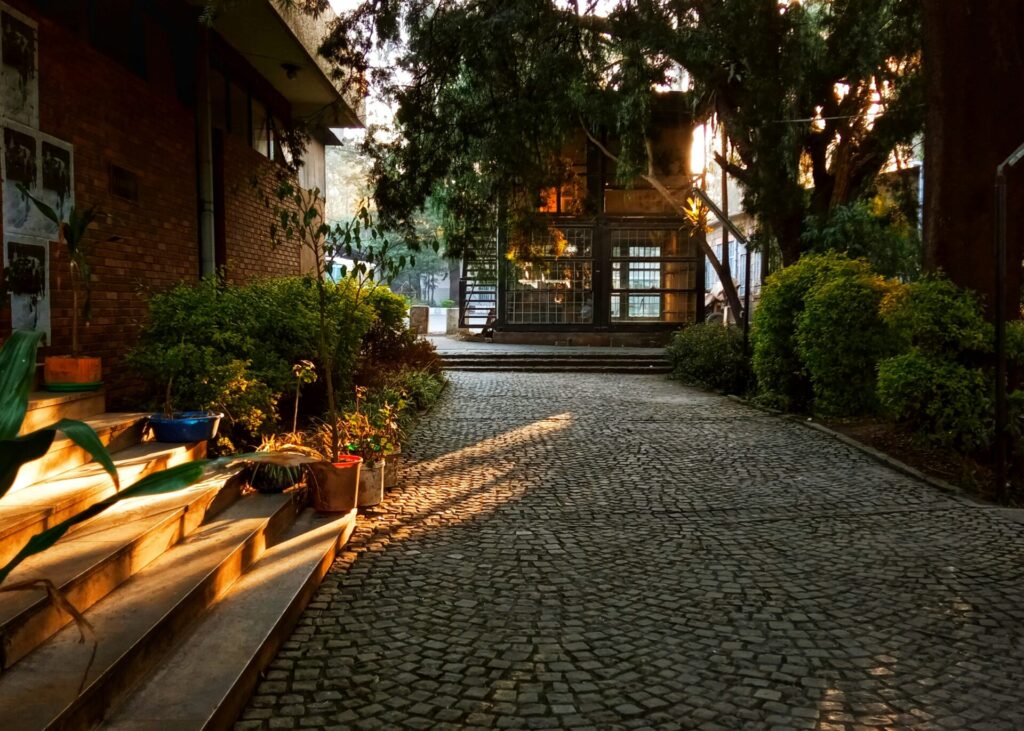
Getting Around Addis Ababa
One thing you should know about getting around my city is that you are bound to be overcome by the profusion of welcoming shadowy terraces, ornate buildings with colourful patterns, and kaleidoscope of cultural diversity accompanied by the smell of spices and coffee in the air.
The best way to travel in my city to have as little impact as possible is walking around, to be able to take in as much as you can, as well as getting a bit of exercise as you do so.
Luckily this method of transportation also allows me to marvel at the intricate built detail and decorative artistry of everything around me.
Outside The City
To get away and into the outdoors, I like to visit the Bale Mountains National Park, the perfect place to spot the endangered Ethiopian Wolf, go on horseback rides and do some fishing. Here you can also learn how local coffee and honey are produced.
For a day trip just beyond my city, I go to Danakil Depression, in the Afar region, the hottest place in all of Ethiopia. I enjoy this because this is a major feature in most local school curricula, hence well-known by many natives. The sunsets here are breathtaking, the camel caravans enjoyable to watch, and the alien landscapes make the expedition more than worth it.
Many people will head to the Ethnological Museum, commonly known as the palace of the last Ethiopian King, Emperor Haile Selassie. The views are amazing as you stroll up from the university gates, but locals know to go to Asni Gallery & Café, where they display pieces by local artists and show their support for the creative community. Owner Konjit Seyoym opened the gallery in 1996 with the aim of “promoting contemporary Ethiopian art by providing space to young and upcoming artists with thought provoking experimental works”.
I really enjoy the view of my city from Mount Entoto. From here, I can see what remains of Emperor Menelik II’s palace (and visit the Entoto Natural Park too).
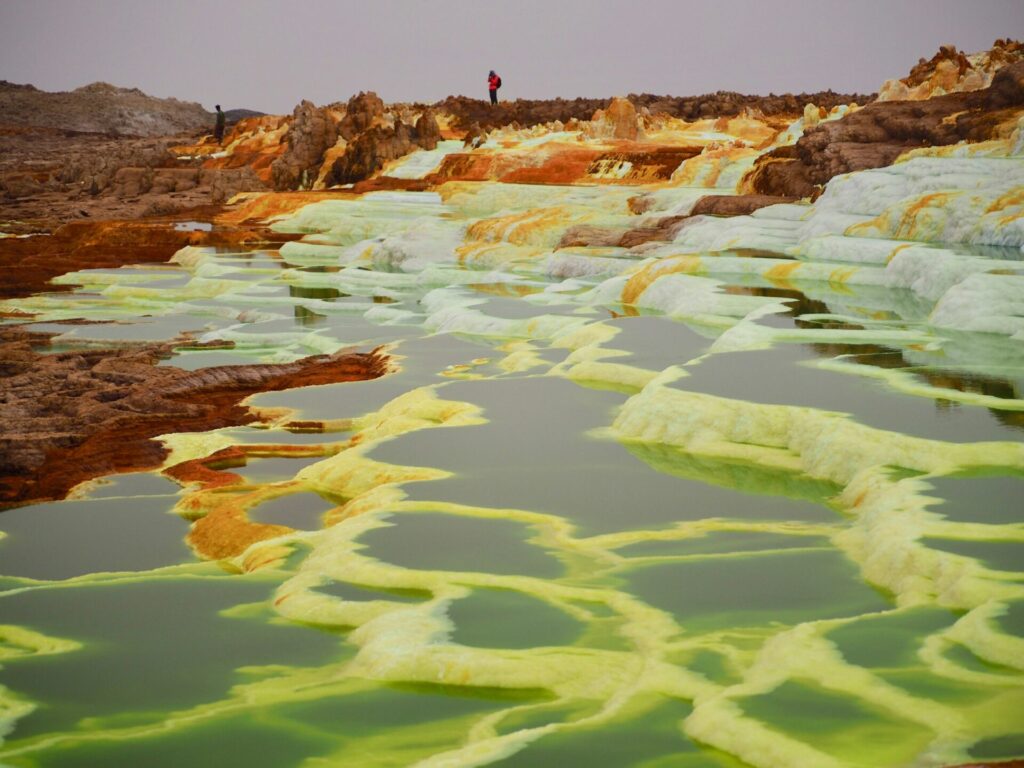
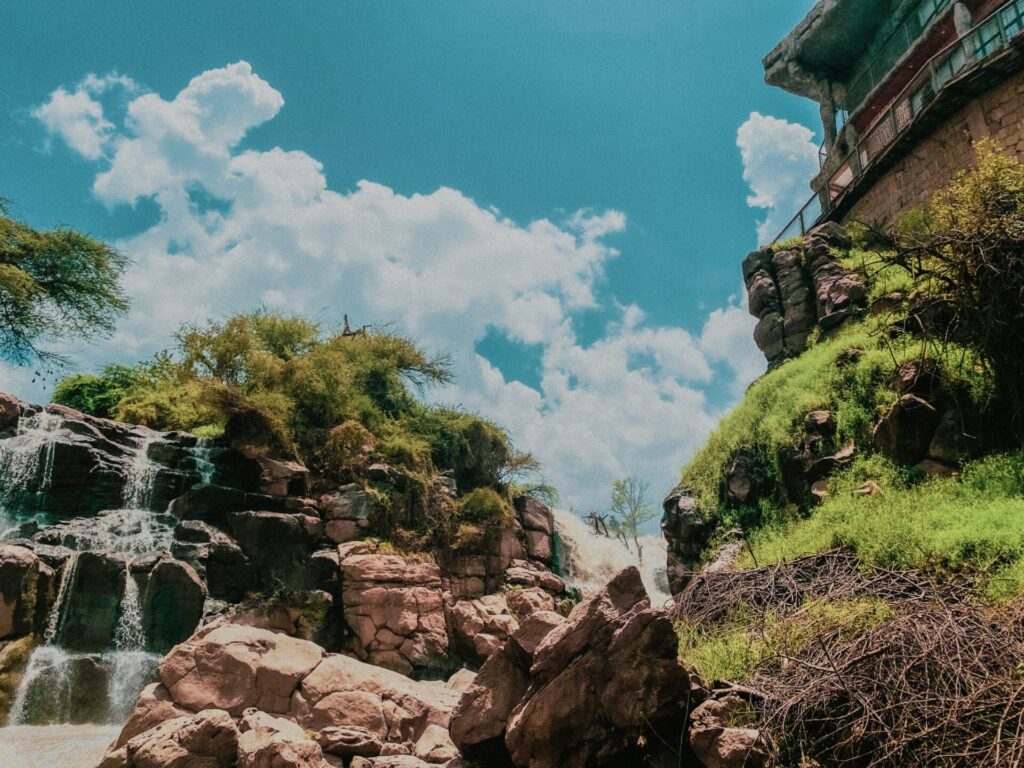
Connecting with Locals
When I want to have fun and celebrate being out of the city, I plan a tour of Awash National Park, located in Dire Dawa. The volcanic landscape and wildlife opportunities never fail to enchant. The hot springs are also quite an attraction.
To hang out with my friends and go to a real insider spot, I go to Alem Bunna where they serve fresh coffee blends with quite a variety to choose from. Visitors can mingle with locals, with a crowd that tends towards a youthful vibe.
The best resource for finding out what’s going on around town is LinkUp Addis.
When I want to enjoy my city without spending much (or any) money, I take a walk to Meskel Square, always abuzz with life and activity.
My first choice for music is African Jazz Village — tucked away in a part of the city easily missed, at the Ghion Hotel next to Meskel Square — because every Wednesday, Mulatu Astateke, the founding father of Ethiopian Jazz usually performs. And when I feel like dancing, I go to Royal Lounge by Mama’s Kitchen for the modern sounds and neon-lit ambience.
Finding Solitude in Addis Ababa
When I want to go somewhere to sit and relax in my incredible city, I go to Zoma Museum Mekanisa, an incubator for innovative and avant-garde art and architecture. With its dedication to ecological artistry, it is a perfect example of sustainable development with a botanical garden where I can read and enjoy a coffee while appreciating our indigenous plants and animals too.
The place that makes me proudest of my city is the top of Mount Entoto because the panoramic landscape is breathtaking, showcasing the vibrancy and variety of Addis Ababa.
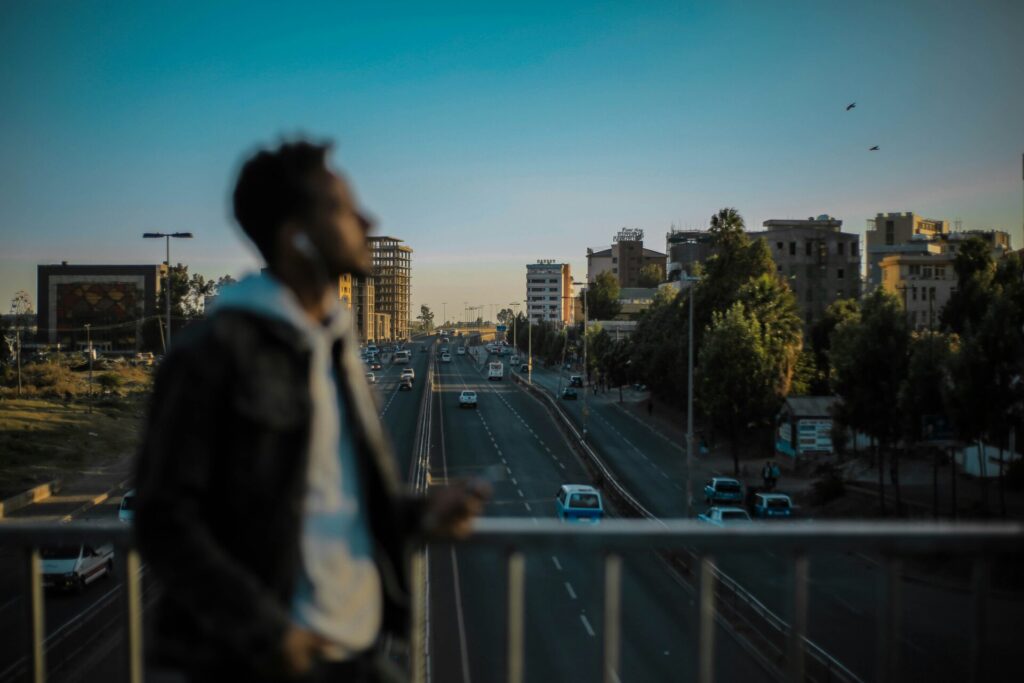
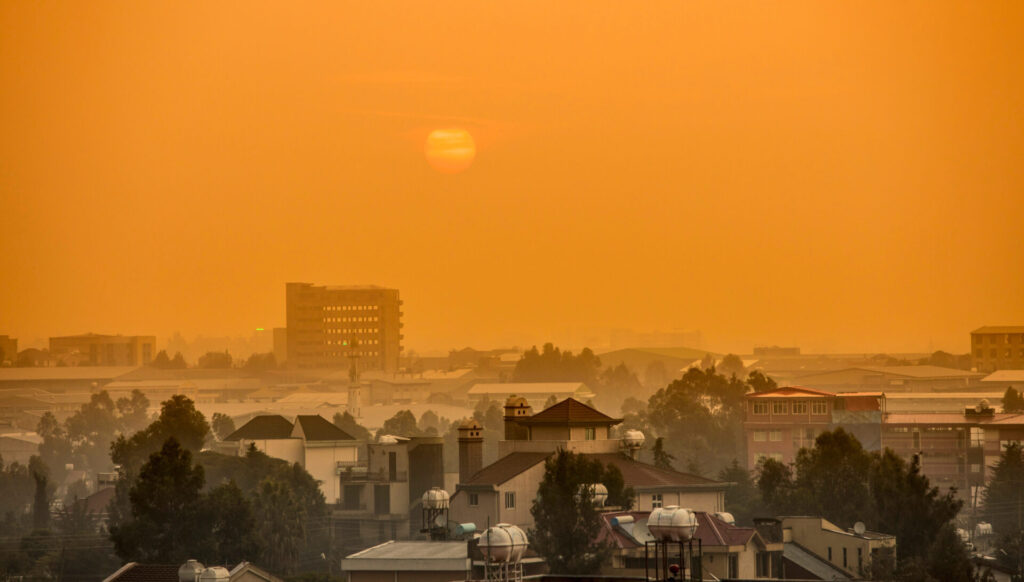
When the Seasons Change, This City Shines
The climate varies a bit from the highlands to the lowlands, but Addis Ababa experiences two primary seasons; wet season and dry season.
I always recommend people visit in the dry months (May to October) because the verdant vegetation just after the rains will have bloomed and the landscapes look amazing. Hiking and camping are best during these times. Also, you can indulge in bird watching, spotting indigenous and migratory species too. Unsurprisingly, these are the months when tourist sites are at their busiest.
The wet months (November to April) here are magical when you witness the carpets of yellow meskel flowers coming to life. Fewer tourists during these months also means lower rates on most lodges and modes of transport too.

